March 26 stands as one of history’s most eventful days, witnessing the rise and fall of empires, groundbreaking discoveries, and moments that shaped our modern world across centuries of human achievement.

Politics and Government Events on March 26
1971 – East Pakistan Declares Independence, Bangladesh War Begins
East Pakistan boldly declared independence from Pakistan on this historic date, forming Bangladesh. The declaration ignited the Bangladesh War of Independence, forever changing South Asian geopolitics.
The proclamation marked the beginning of a brutal nine-month conflict. International tensions escalated as regional powers took sides in the emerging crisis.
1979 – Egypt-Israel Peace Treaty Signed

Anwar al-Sadat, Menachem Begin, and Jimmy Carter signed the groundbreaking Egypt-Israel peace treaty in Washington, D.C. This historic agreement ended decades of hostility between the two Middle Eastern nations.
The treaty established a framework for normalized relations and mutual recognition. Carter’s diplomatic efforts helped broker this landmark achievement in Middle Eastern peace negotiations.
1991 – Mercosur Trade Agreement Established
Argentina, Brazil, Uruguay, and Paraguay signed the Treaty of Asunción, establishing Mercosur, the South Common Market. This economic alliance transformed regional trade relationships across South America.
The agreement eliminated trade barriers and promoted economic cooperation among member nations. Mercosur became one of the world’s largest trading blocs by geographic area.
2005 – Taiwan Protests China’s Anti-Secession Law
Between 200,000 to 300,000 Taiwanese citizens demonstrated in Taipei against China’s Anti-Secession Law. The massive protest highlighted growing tensions across the Taiwan Strait.
Citizens expressed fierce opposition to Beijing’s legislative threats against Taiwan’s autonomy. The demonstration became one of the largest political rallies in Taiwan’s democratic history.
2017 – Russia-Wide Anti-Corruption Protests

Massive anti-corruption protests erupted across 99 Russian cities, challenging Vladimir Putin’s administration. The Levada Center survey revealed that 38% of Russians supported the demonstrations.
Protesters demanded accountability for high-level government corruption throughout the country. The widespread nature of the protests surprised international observers and domestic authorities alike.
1970 – South Vietnam Implements Land Reform
South Vietnamese President Nguyễn Văn Thiệu implemented a comprehensive land reform program to address land tenancy issues. The initiative aimed to redistribute agricultural land to rural peasants.
The program sought to reduce communist influence in rural areas through economic incentives. Land reform became a crucial element of South Vietnam’s counter-insurgency strategy.
1920 – Social Democratic Party Founded in United Kingdom
The Social Democratic Party established itself as a major political force in British politics. Party founders sought to create a centrist alternative to Labour and Conservative parties.
The party attracted prominent politicians seeking a middle ground in British politics. Its formation reflected growing dissatisfaction with traditional party boundaries in the UK.
Military and Naval History on March 26
1913 – Bulgarian Forces Capture Adrianople
Bulgarian forces successfully captured the strategic city of Adrianople during the First Balkan War. This victory demonstrated Bulgaria’s military prowess against Ottoman forces.
The capture of Adrianople marked a decisive moment in the declining Ottoman Empire’s retreat from Europe. Bulgarian soldiers celebrated their triumph in this historically significant fortress city.
1917 – First Battle of Gaza Begins
British troops encountered fierce resistance as 17,000 Turkish soldiers blocked their advance during World War I. The First Battle of Gaza marked a significant setback for British forces in Palestine.
Turkish defenders successfully repelled the British assault, forcing a strategic withdrawal. This defeat delayed British plans to capture Jerusalem and advance into the Levant.
1939 – Spanish Civil War Final Offensive
Nationalist forces launched their final offensive campaign of the Spanish Civil War on this date. General Francisco Franco’s army prepared to crush the remaining Republican resistance.
The offensive marked the beginning of the end for the Spanish Republic. Within weeks, Madrid would fall to Nationalist forces, ending three years of devastating civil conflict.
1945 – Battle of Iwo Jima Concludes
American forces officially secured the island of Iwo Jima after weeks of brutal fighting against Japanese defenders. The battle cost thousands of American and Japanese lives.
The capture of Iwo Jima provided a crucial airbase for bombing raids against Japan. This victory brought Allied forces within striking distance of the Japanese mainland.
1942 – First Female Prisoners Arrive at Auschwitz
The first female prisoners arrived at Auschwitz concentration camp in German-occupied Poland. This tragic milestone marked the expansion of Nazi persecution policies.
The arrival of women prisoners signaled the systematic implementation of the Holocaust. Auschwitz would become the most notorious symbol of Nazi genocide and brutality.
2010 – South Korean Navy Corvette Attacked
The South Korean Navy corvette Cheonan was torpedoed, killing 46 sailors in a shocking attack. An international investigation later determined North Korea’s responsibility for the assault.
The attack heightened tensions on the Korean Peninsula and prompted international condemnation. The United Nations Security Council blamed North Korea for this unprovoked act of aggression.
Science and Discovery Milestones on March 26
1958 – United States Launches Explorer 3

The United States Army successfully launched Explorer 3, advancing American space exploration capabilities. This satellite contributed valuable scientific data about Earth’s radiation belts.
Explorer 3 helped American scientists understand the Van Allen radiation belts surrounding Earth. The mission demonstrated American determination to compete in the Space Race with the Soviet Union.
1954 – Nuclear Weapons Test Castle Romeo
The Romeo shot of Operation Castle was detonated at Bikini Atoll, yielding an enormous 11 megatons. This nuclear test demonstrated the devastating power of thermonuclear weapons.
The massive explosion exceeded expectations and caused widespread radioactive contamination. The test highlighted the growing nuclear arms race between superpowers during the Cold War.
1975 – Biological Weapons Convention Enters Force
The Biological Weapons Convention officially came into force, prohibiting the development and production of biological weapons. This international treaty represented a significant step toward global disarmament.
The convention banned the stockpiling of biological agents for non-peaceful purposes. Nations worldwide committed to preventing the weaponization of deadly pathogens and toxins.
Cultural and Arts Events on March 26
1967 – Central Park Be-In Attracts Thousands

Ten thousand people gathered for one of many Central Park be-ins in New York City. The peaceful gathering exemplified the counterculture movement’s growing influence on American society.
Participants celebrated peace, love, and social harmony in the heart of Manhattan. The be-in became a symbol of the 1960s hippie movement and anti-establishment sentiment.
1997 – Heaven’s Gate Mass Suicide Discovered

Thirty-nine bodies were discovered in the Heaven’s Gate mass suicide, shocking the American public. The religious cult’s tragic end highlighted the dangers of extremist beliefs.
Cult members believed they would achieve spiritual transcendence through death. The incident prompted national discussions about religious freedom and cult manipulation tactics.
1921 – Vietnam Veterans Memorial Groundbreaking

A groundbreaking ceremony for the Vietnam Veterans Memorial was held in Washington, D.C. The memorial would honor American soldiers who died in the Vietnam War.
The ceremony marked a significant step toward national healing after the controversial conflict. The memorial would become one of America’s most visited and emotionally powerful monuments.
Religious and Social Events on March 26
1998 – Oued Bouaicha Massacre in Algeria
During the Algerian Civil War, the Oued Bouaicha massacre saw fifty-two people killed with axes and knives. Most victims were innocent infants and civilians.
The brutal attack exemplified the extreme violence plaguing Algeria during its civil conflict. International observers condemned the systematic targeting of civilian populations.
1991 – Singapore Airlines Flight Hijacking

Singapore Airlines Flight 117 was hijacked by four Pakistani terrorists and diverted to Changi Airport. The dramatic incident tested international aviation security protocols.
Airport authorities and security forces worked to resolve the crisis peacefully. The hijacking highlighted growing concerns about international terrorism and airline safety.
1979 – Peace Activist Self-Immolation

Alice Herz, a German peace activist, self-immolated in protest of U.S. imperialism, shocking the nation. Her dramatic sacrifice drew attention to anti-war movements.
Herz’s extreme protest method reflected the intensity of opposition to American foreign policy. Her death became a symbol of ultimate commitment to peace activism.
Business and Economic Events on March 26
1931 – Swissair Founded as National Airline
Swissair was established as Switzerland’s national airline, marking the country’s entry into commercial aviation. The airline would become synonymous with Swiss precision and quality.
Swissair connected Switzerland to international markets and promoted tourism. The airline’s founding reflected Switzerland’s commitment to maintaining global business connections.
1934 – United Kingdom Introduces Driving Test
The United Kingdom introduced mandatory driving tests, revolutionizing road safety standards. This requirement established professional standards for motor vehicle operation.
The driving test system improved road safety and reduced traffic accidents significantly. Britain’s initiative influenced driving standards and testing procedures worldwide.
2024 – Francis Scott Key Bridge Collapse

The Francis Scott Key Bridge collapsed following a collision between the MV Dali container ship and a support pillar. The tragic accident killed six people and disrupted regional transportation.
The collapse highlighted vulnerabilities in America’s aging infrastructure system. Emergency responders worked tirelessly to rescue survivors and restore transportation links.
Transportation and Infrastructure on March 26
1955 – Pan Am Flight 845 Ditches in Pacific

Pan Am Flight 845/26 ditched in the Pacific Ocean off the Oregon coast, killing four passengers. The aviation accident demonstrated the dangers of transoceanic flights.
Rescue operations recovered survivors from the frigid Pacific waters. The incident led to improved safety protocols for flights over remote ocean areas.
1979 – Interflug Aircraft Crashes During Takeoff
An Interflug Ilyushin Il-18 crashed at Quatro de Fevereiro Airport during a rejected takeoff, killing ten people. The accident highlighted safety concerns in international aviation.
Investigators examined mechanical failures and pilot procedures following the crash. The tragedy prompted reviews of airport safety protocols and aircraft maintenance standards.
1931 – Ho Chi Minh Communist Youth Union Founded
The Ho Chi Minh Communist Youth Union was established in Vietnam, organizing young revolutionaries. The organization would play a crucial role in Vietnam’s independence movement.
The youth union mobilized students and workers against French colonial rule. Its formation demonstrated the growing strength of Vietnamese nationalist movements.
Sports and Recreation on March 26
1915 – Vancouver Millionaires Win Stanley Cup
The Vancouver Millionaires won the 1915 Stanley Cup Finals, marking the first championship between the Pacific Coast Hockey Association and National Hockey Association. This historic victory bridged Canadian hockey’s regional divisions.
The championship game demonstrated the growing popularity of professional hockey across Canada. Vancouver’s triumph established the Pacific Coast as a legitimate hockey powerhouse.
1922 – German Social Democratic Party Founded in Poland
The German Social Democratic Party was founded in Poland, representing ethnic German interests. The party sought to protect German minority rights in the newly independent Polish state.
Political organization reflected the complex ethnic dynamics in post-World War I Europe. The party’s formation highlighted ongoing tensions between national and ethnic identities.
1958 – African Regroupment Party Launched
The African Regroupment Party was launched at a meeting in Paris, promoting African independence movements. The party coordinated efforts among various African nationalist organizations.
Party leaders sought to unite African independence movements under a common political framework. The organization played a significant role in decolonization efforts across the continent.
Notable Births on March 26
1911 – Tennessee Williams Born
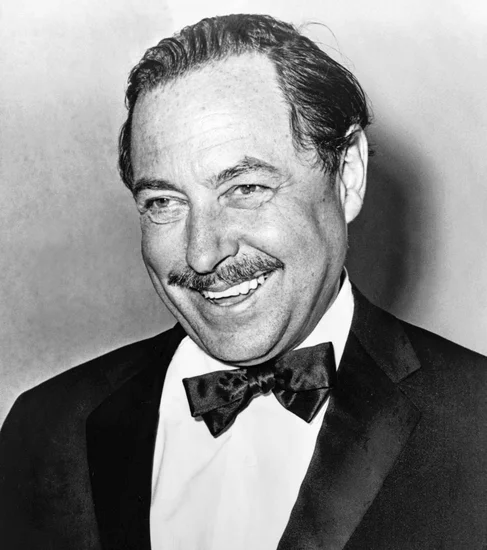
American playwright and poet Tennessee Williams entered the world, destined to become one of America’s greatest dramatists. His childhood in Mississippi shaped his literary sensibilities.
Williams would create iconic plays like “A Streetcar Named Desire” and “The Glass Menagerie.” His works explored themes of desire, memory, and human fragility with unmatched poetic power.
1950 – Leonard Nimoy Born

American actor Leonard Nimoy was born, later achieving immortality as Mr. Spock in “Star Trek.” His portrayal of the logical Vulcan character became a cultural phenomenon.
Nimoy’s performance transcended science fiction to become an enduring symbol of rationality and wisdom. His catchphrase “Live long and prosper” entered popular culture permanently.
1940 – Nancy Pelosi Born

American lawyer and politician Nancy Pelosi was born, later becoming the 52nd Speaker of the House. Her political career would span decades of Democratic leadership.
Pelosi would make history as the first woman to serve as Speaker of the House. Her legislative skills and political acumen earned respect from allies and opponents alike.
1963 – Richard Dawkins Born

Kenyan-English ethologist and biologist Richard Dawkins was born, becoming one of the world’s most influential evolutionary biologists. His scientific work revolutionized understanding of evolution.
Dawkins would author “The Selfish Gene,” introducing groundbreaking concepts about genetic evolution. His popular science writing made complex evolutionary theory accessible to general audiences.
1944 – Diana Ross Born

American singer-songwriter and actress Diana Ross was born in Detroit, Michigan. Her powerful voice would define the Motown sound and influence generations of performers.
Ross achieved fame as lead singer of The Supremes before launching a successful solo career. Her glamorous style and musical talent made her an international entertainment icon.
1948 – Steven Tyler Born

American singer-songwriter and actor Steven Tyler was born, later becoming Aerosmith’s iconic frontman. His distinctive voice and flamboyant stage presence defined rock and roll.
Tyler’s energetic performances and powerful vocals helped Aerosmith become one of America’s greatest rock bands. His showmanship and musical creativity earned him rock legend status.
1950 – Martin Short Born

Canadian-American actor, screenwriter, and producer Martin Short was born, becoming one of comedy’s most versatile performers. His improvisational skills and character work delighted audiences worldwide.
Short’s work on “Saturday Night Live” and numerous films showcased his extraordinary comedic range. His ability to create memorable characters made him a beloved entertainment figure.
1973 – Larry Page Born

American computer scientist and businessman Larry Page was born, later co-founding Google and revolutionizing internet search. His innovative algorithms transformed how people access information.
Page’s PageRank algorithm became the foundation for Google’s search engine dominance. His technological vision helped create one of the world’s most valuable companies.
1975 – Keira Knightley Born

English actress Keira Knightley was born, later becoming one of Britain’s most acclaimed performers. Her period drama performances earned international recognition and acclaim.
Knightley’s roles in “Pride and Prejudice” and “Pirates of the Caribbean” showcased her dramatic range. Her elegant screen presence and acting talent made her a sought-after leading lady.
Notable Deaths on March 26
1945 – David Lloyd George Dies
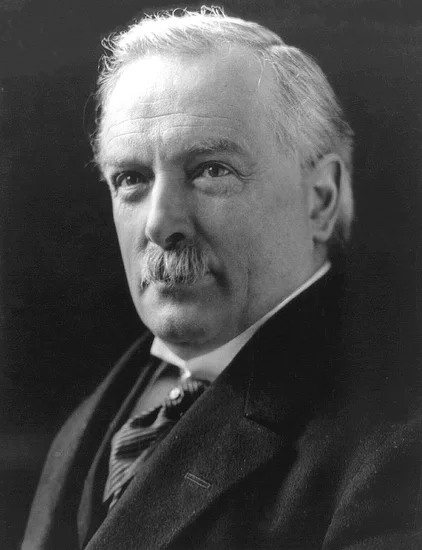
English-Welsh lawyer and politician David Lloyd George passed away, ending a remarkable political career. As Prime Minister of the United Kingdom, he led Britain through World War I.
Lloyd George’s social reforms and wartime leadership transformed British society. His “People’s Budget” and welfare policies established foundations for the modern welfare state.
1923 – Sarah Bernhardt Dies

French actress and screenwriter Sarah Bernhardt passed away, concluding one of theater’s most celebrated careers. Her dramatic performances captivated audiences across Europe and America.
Bernhardt’s passionate acting style and theatrical presence made her the world’s first international stage star. Her influence on dramatic performance techniques continues to inspire actors today.
1973 – Noël Coward Dies
English playwright, actor, and composer Noël Coward passed away, leaving behind a legacy of wit and sophistication. His plays and songs epitomized British theatrical elegance.
Coward’s works like “Private Lives” and “Blithe Spirit” showcased his mastery of comedy and drama. His sophisticated dialogue and theatrical craftsmanship influenced generations of playwrights.
1959 – Raymond Chandler Dies
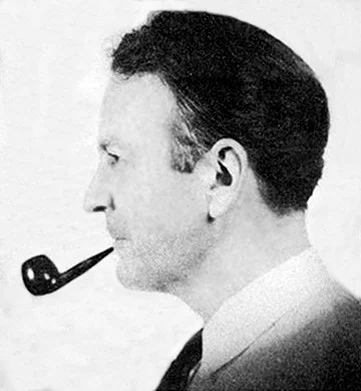
American crime novelist and screenwriter Raymond Chandler passed away, ending a distinguished literary career. His detective fiction featuring Philip Marlowe defined the hard-boiled genre.
Chandler’s novels like “The Big Sleep” and “Farewell, My Lovely” set new standards for crime fiction. His atmospheric writing and complex characters elevated detective stories to literary art.
1995 – Eazy-E Dies

American rapper and producer Eazy-E passed away, leaving behind a revolutionary impact on hip-hop music. His work with N.W.A. helped establish gangsta rap as a dominant genre.
Eazy-E’s aggressive style and controversial lyrics challenged social conventions and censorship. His entrepreneurial spirit and artistic vision helped launch West Coast rap’s commercial success.
1902 – Cecil Rhodes Dies

English-South African colonialist, businessman, and politician Cecil Rhodes passed away, ending his controversial career. As 6th Prime Minister of the Cape Colony, he shaped Southern African history.
Rhodes’s imperial ambitions and diamond mining empire made him one of Africa’s most powerful figures. His legacy remains complex, encompassing both economic development and colonial exploitation.
1980 – Roland Barthes Dies

French linguist and critic Roland Barthes passed away, concluding an influential academic career. His semiotic theories revolutionized literary criticism and cultural analysis.
Barthes’s works like “Mythologies” and “S/Z” transformed how scholars interpret texts and cultural phenomena. His intellectual contributions influenced fields from literature to anthropology.
2005 – James Callaghan Dies
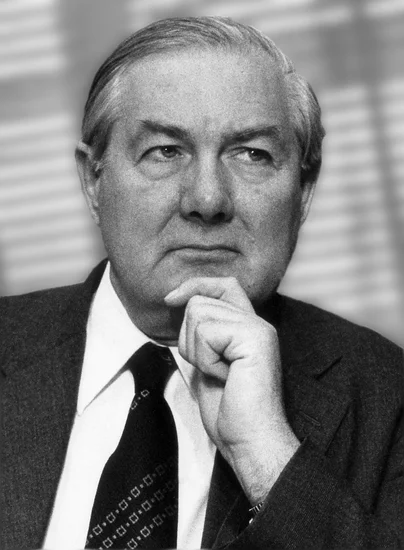
English lieutenant and politician James Callaghan passed away, ending a distinguished political career. As Prime Minister of the United Kingdom, he led during challenging economic times.
Callaghan’s leadership during the “Winter of Discontent” marked a pivotal moment in British politics. His moderate approach to socialism influenced Labour Party policies for decades.
1996 – David Packard Dies
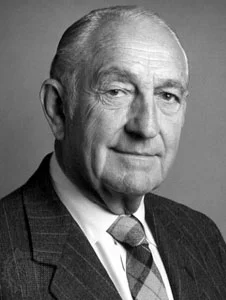
American engineer and businessman David Packard passed away, concluding a remarkable entrepreneurial career. He co-founded Hewlett-Packard, revolutionizing the technology industry.
Packard’s management philosophy and innovative products helped establish Silicon Valley’s dominance. His “HP Way” became a model for corporate culture and employee relations.
Holidays and Observances on March 26
Independence Day and National Day (Bangladesh)
Bangladesh celebrates Independence Day and National Day, commemorating the 1971 declaration of independence from Pakistan. The holiday honors the courage of those who fought for freedom.
Celebrations include parades, cultural performances, and remembrance ceremonies throughout the country. The day reflects Bangladesh’s journey from colonial rule to sovereign nationhood.
Prince Kūhiō Day (Hawaii, United States)
Hawaii observes Prince Kūhiō Day, honoring Prince Jonah Kūhiō Kalanianaʻole, a beloved Hawaiian leader. The holiday celebrates Native Hawaiian culture and heritage.
Prince Kūhiō served as Hawaii’s delegate to Congress and championed Native Hawaiian rights. His legacy continues to inspire Hawaiian sovereignty movements and cultural preservation efforts.
Purple Day (Canada and United States)
Canada and the United States observe Purple Day, raising awareness about epilepsy and supporting those affected by the condition. The purple color symbolizes solidarity and understanding.
The observance educates people about epilepsy and reduces stigma surrounding the neurological disorder. Purple Day encourages communities to support epilepsy research and patient care.
Martyr’s Day or Day of Democracy (Mali)
Mali observes Martyr’s Day or Day of Democracy, commemorating those who sacrificed their lives for democratic principles. The holiday honors Mali’s struggle for political freedom.
The day remembers victims of political oppression and celebrates democratic achievements. Malians reflect on their nation’s journey toward democratic governance and human rights.
